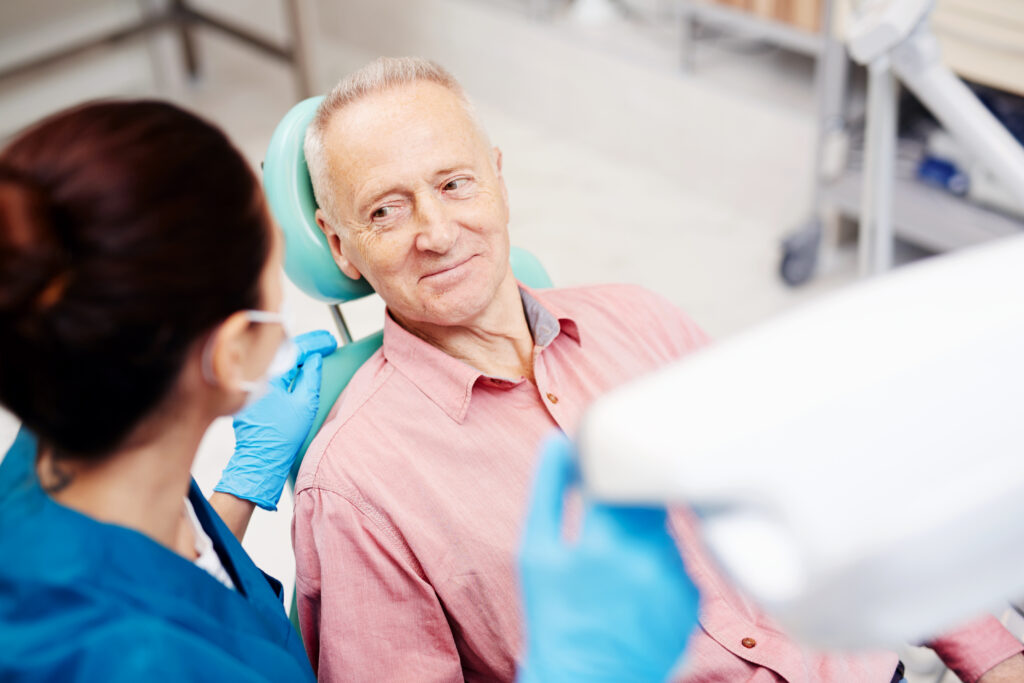
The U.S. product recall announced by Dutch company Philips has shaken sleep medicine practitioners and patients alike. Philips announced in June it was recalling millions of units of the Philips Bi-Level Positive Airway Pressure (Bi-Level PAP), Continuous Positive Airway Pressure (CPAP), and mechanical ventilator devices.1
While patients are being advised by Philips to consult with their doctors about whether to adjust their treatment plans, Philips has said that, in some cases, the benefits of continuing to use the devices “may outweigh the risks.”1
But how about other cases? How about the newly diagnosed, or those with mild or moderate obstructive sleep apnea (OSA)? What options are available? With so many unknowns, including how serious or slight the Philips risk may be, and the lack of other CPAP resources beyond ResMed,2 what else might help patients and physicians?
What about oral appliances?
While there are no simple answers or one-size-fits-all solutions, one possibility is oral appliances.
The American Academy of Sleep Medicine (AASM) recommends oral sleep appliances as first-line treatment options for those with mild and moderate levels of sleep apnea, as well as for individuals who are CPAP intolerant.3
As an alternative to CPAP treatment for obstructive sleep apnea (OSA), oral appliance therapy (OAT) is often deployed by dental sleep medicine practitioners, working in collaboration with referring sleep physicians.3
Studies supporting “the use of overnight pulse oximetry by dental sleep practitioners (DSPs) to confirm their patients’ response to oral appliance therapy during treatment for sleep-disordered breathing (SDB) are well documented.”3
The American Academy of Dental Sleep Medicine recommended in its treatment protocol that “dentists may obtain objective data during an initial trial period to verify that the oral appliance effectively improves upper airway patency during sleep.”3
How about home sleep apnea tests (HSATs)?
The Philips recall has not changed the guidance for or the importance of continued screening and diagnostic testing for OSA. In fact, “the trend for home sleep tests is climbing [since the pandemic began], with more physicians who were not on board now embracing this process as they see returned sleep analyses in days, not weeks.”6
What do dentists say?
Commenting on the Philips recall, Pennsylvania dentist Beth Snyder, DMD said “Sleep apnea significantly impacts daytime sleepiness and quality of life, and many patients rely on a CPAP for treatment. To ensure they continue to have treatment during this recall, those suffering from OSA should know that oral appliance therapy is a proven, effective treatment option.”5
With OAT, the patient wears a mandibular advancement splint, which is a mouthguard-like appliance that positions the lower jaw forward to open the airway continuously through the night. Studies have shown that patients comply better with OAT than with CPAP. 3(Studies have shown more than half of all patients who use a CPAP machine stop using it within a year due to discomfort.)3
Dr. Snyder also said “Dentists trained in dental sleep medicine work in conjunction with physicians and recommend a specific oral appliance based on a patient’s personal needs. The important thing for patients to remember is that oral appliances should always be custom fit by a trained dentist who provides follow-up care to ensure maximum effectiveness.”5
What’s next?
Philips has recommended for users of their recalled BPAP and CPAP machines to discontinue treatment.4
The AASM has stated, as regards the BPAP and CPAP machines in question, that sleep medicine professionals “discuss treatment options with the patient, taking into consideration comorbidities, severity of symptoms, risks associated with PAP discontinuation, and safety-sensitive roles.”4
Further, the AASM suggests:
-when possible, consider procuring another PAP device that is not part of the recall
–consider the appropriateness of alternative treatment options, including positional therapy, oral appliance therapy, and surgery.
-consider the appropriateness of behavioral modification strategies such as weight loss, exercise, and avoidance of alcohol and sedatives before bedtime.4
(NOTE: These are only a few of the AASM suggestions, and those updated 7/16/21. Please refer to the AASM for most recent guidance.)
REFERENCES:
1
Bomey, N. Philips recalls sleep apnea machines, ventilators over cancer risk. USA Today, Jun 15, 2021. https://www.usatoday.com/story/money/2021/06/15/philips-recall-sleep-apnea-machines-ventilators-cpap-bi-level-pap/7698074002/
2
Spear, L. Sleep professionals scramble to find solutions for sleep apnea patients amidst Philips device recall. Sleep Review. Jun 21, 2021. https://www.sleepreviewmag.com/sleep-treatments/therapy-devices/cpap-pap-devices/sleep-professionals-solutions-sleep-apnea-philips-device-recall/
3
Prehn, RS, ThM, DDS. Using overnight pulse oximetry to manage oral appliance therapy. Sleep Review. Oct 2, 2015. https://www.sleepreviewmag.com/uncategorized/overnight-pulse-oximetry-manage-oral-appliance-therapy/
4
American Academy of Sleep Medicine. AASM guidance in response to Philips recall of PAP devices. Jun 18, 2021 (updated July 16, 2021). https://aasm.org/clinical-resources/guidance-philips-recall-pap-devices/
5
Bello, T. The future of home sleep testing & CPAP patient compliance and resupply: A new normal in sleep. HomeCare. May 7, 2021. https://www.homecaremag.com/may-2021/future-home-sleep-testing-cpap-patient-compliance
